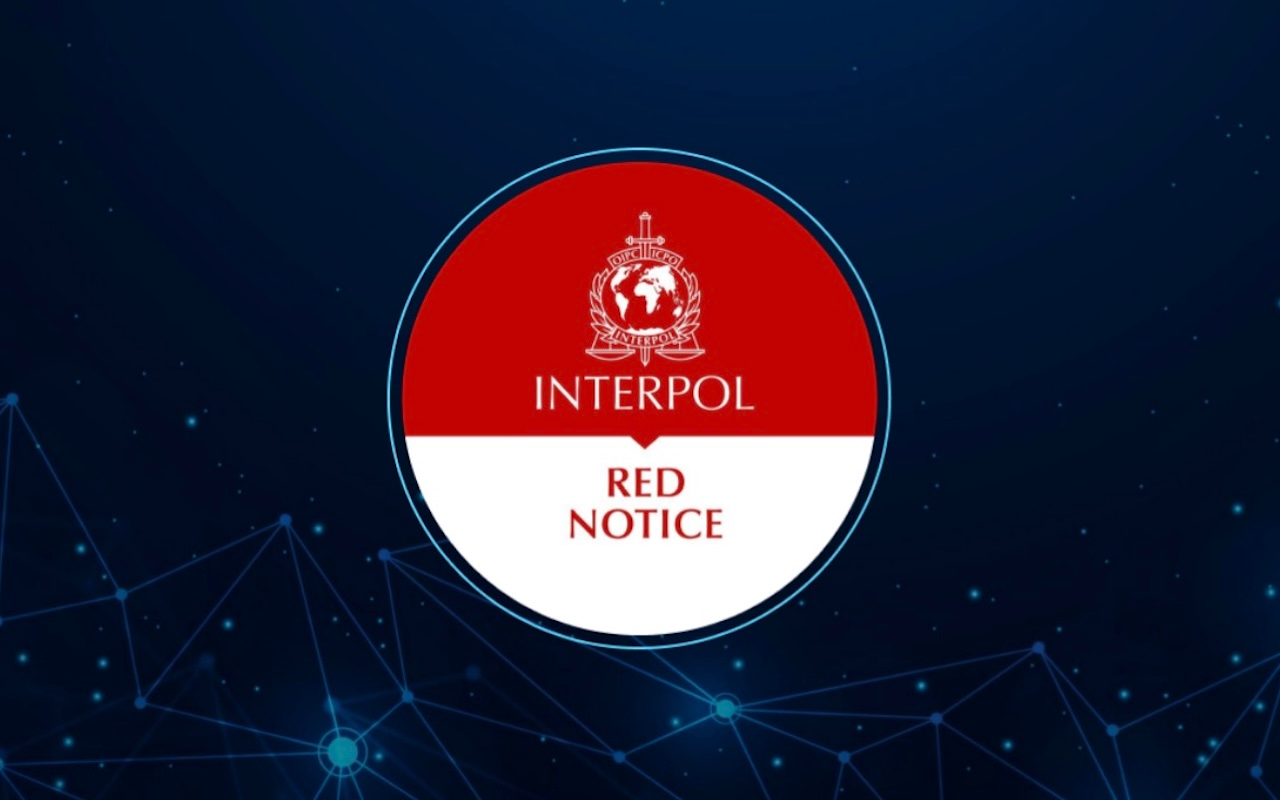What to do if someone has a Red Notice issued against them?

If someone finds out that an INTERPOL Red Notice has been issued against them, it can be alarming and raise a lot of questions. This situation means that they are wanted outside their home country and could potentially be detained in another country. However, a red notice is not a final judgment or arrest warrant, and there are ways to defend themselves. How can one act to minimise risks and protect their rights? This article will examine the key steps and important aspects that help understand how to respond if placed on the INTERPOL wanted list.
What is an INTERPOL Red Notice?
An INTERPOL Red Notice is an international wanted notice used to notify law enforcement agencies around the world of the need to temporarily detain a certain person. This notice is created at the request of one of the Interpol member states that wants to prosecute a person for a serious crime or enforce an already passed sentence. A red notice usually contains basic information about the person, his or her photograph, probable whereabouts, and a brief description of the charge or crime for which he or she is wanted.
It is important to understand that a red notice is not an official arrest warrant and does not automatically oblige other countries to detain a person. Each state decides whether to act on a Red Notice in accordance with its own laws. However, such a notice can significantly restrict your freedom of movement and lead to detention if you cross a border. Therefore, understanding the nature of the red notice and knowing your rights is key to protecting yourself in such a situation.
How does someone know if they are on the Interpol list?
If you suspect that you are wanted by Interpol due to a Red Notice, there are several ways to find out your status.
The Interpol website: Interpol publishes some Red Notices in the public domain on its official website. In the “Red Notices” section, you can find information about some individuals who are internationally wanted for serious crimes. This list is not complete, as Interpol only publishes certain notices, but it is the first step to check. To find out more, just enter the person’s basic data in the search on the Interpol website.
An official request to the CCF: A more precise way to obtain information is to submit a formal request to the INTERPOL Commission for the Control of Files (CCF). The CCF is an independent body of Interpol that deals with issues related to the legality of the use of data in the organisation’s database. You can submit a request to the CCF to find out whether there is a red notice against you in the Interpol system. This can be done either by a person or through a lawyer specialising in international law.
Submitting a request to the CCF allows you not only to receive confirmation or refutation of your status in the INTERPOL database, but also to start the process of appealing the notice if it was issued in violation of your rights.
How to remove a red notice?
Removing an INTERPOL Red Notice is a complicated process that requires the preparation of thorough evidence and documents. If a Red Notice has been issued in violation of your rights or for political reasons, you can request its removal, but you must follow certain steps.
Gathering evidence and case details: First of all, you need to collect as many documents as possible to support your position. These may include:
- Documents refuting the charges – for example, proof of your innocence or evidence that the charges are unfounded.
- Court decisions – if the case has already been heard in court and has a decision in your favour, this can be a strong argument for removing the red notice.
- Documents indicating political motivation – if you suspect that the charges against you are political in nature, it is important to collect evidence to support this version.
Contacting a lawyer: Defence in Interpol cases requires legal expertise, so it is recommended to contact Red Notice Removal Lawyers. An experienced lawyer will be able to:
- Prepare and submit a request to the Interpol Control Commission on Files (CCF) – this is the independent body of Interpol that considers the removal of red notices if there are grounds for their illegality.
- Formulate clear arguments and evidence – a lawyer will help to collect and structure evidence so that it is clear and convincing to the commission.
- Negotiate with Interpol – a qualified lawyer knows how to communicate with Interpol and other international bodies to effectively protect your rights.
The process of removing a red notice can be lengthy, but with proper evidence and the help of a lawyer, you have the opportunity to defend your rights and achieve the cancellation of an unlawful search in the Interpol database.
Request to the Commission for the Control of Interpol Files (CCF)
Submitting a request to the Commission for the Control of INTERPOL’s files (CCF) is an important step if you want to remove a Red Notice that you believe was issued in violation of your rights or is unlawful. The CCF is an independent body of INTERPOL that is responsible for monitoring and controlling the data stored in INTERPOL databases and deals with complaints about Red Notices.
How to submit a request to the CCF:
To submit a request, you need to prepare a document containing a request to remove a red notice with justification for such a request. The request must set out arguments demonstrating that the notice was issued in violation of INTERPOL principles, in particular if it is of a political nature or contains other unlawful allegations.
Basic requirements for the request:
- Personal data: The request must include your personal data, such as full name, date of birth, nationality, and contact information for feedback.
- Description of the situation: Describe in detail the circumstances of the case, explain why you think the red notice is unlawful, and indicate how it affects your life and rights.
- Arguments and evidence: The evidence provided should support your arguments. This may include documents that prove that the accusations are unfounded or politically motivated. If there are court decisions proving your innocence or recognising the charges as unfounded, they should also be included.
- Signature of the lawyer (if possible): If you are working with a lawyer, it is worthwhile to involve them in drafting the request. An experienced lawyer can clearly articulate your arguments and present them to the CCF in a proper manner.
What to expect after submitting a request:
After submitting the request, the CCF reviews your case, checks the evidence and justifications provided. The review process may take some time, as the Commission conducts a detailed analysis of the situation. If violations of Interpol principles are found, the CCF may decide to remove the red notice from the database.
A request to the CCF is an official way to defend your rights if a red notice has been issued with violations and reduce the risks associated with international search.
Possible results and next steps
After submitting a request to the Commission for the Control of INTERPOL’s files (CCF), the process of reviewing your case begins. Depending on the complexity of the case and the amount of evidence submitted, it can take from several months to a year to get the result. The review includes verification of documents, assessment of the validity of the Red Notice and its compliance with INTERPOL principles.
Possible outcomes of the review:
- Removal of the red notice. If the CCF determines that the notice was issued in violation of INTERPOL’s principles, in particular due to political, military or religious motivation, or if the evidence confirms your innocence, the red notice may be removed from the database. This will ensure that you can move freely without the threat of detention abroad.
- Confirmation of the legitimacy of the notice. If CCF believes that the Red Notice complies with INTERPOL’s principles and has legal grounds, the notice remains in the database. In this case, you should be careful when traveling internationally, as detention abroad remains a possibility.
- Request for additional evidence. In some cases, the CCF may request additional evidence or information to more accurately review your case. In this case, it is important to promptly provide all necessary materials to facilitate a positive resolution of the case.
Next steps:
If the CCF’s decision is positive and the red notice is removed, you can travel safely. If the notice remains in effect, you should discuss further steps with a lawyer. A lawyer can help you develop a strategy to minimise the risk of detention and protect your rights, and may recommend limiting travel to countries where the risk of extradition is high.
When should I contact a lawyer?
You should contact a lawyer as soon as possible after you learn that an INTERPOL Red Notice has been issued against you. Professional legal support is critical in such situations, as a lawyer with experience in INTERPOL and international law can help protect your rights and reduce risks.
When you need the help of a lawyer:
- Preparing and submitting a request to the CCF. Since submitting a request to the Commission for the Control of INTERPOL Files requires reasonable arguments and relevant evidence, a qualified lawyer will help you formulate the request in such a way as to increase the chances of removing the red notice.
- Risk assessment and travel advice. A lawyer will be able to analyse the countries where there is an increased risk of detention or extradition and recommend how to avoid traveling to these countries. A timely consultation will help you avoid unjustified detention while crossing borders.
- Protection during detention abroad. If you are detained abroad on the basis of a red notice, a lawyer will be able to provide immediate legal support, help you contact your country’s embassy and protect your rights during the proceedings.
- Preparation of evidence and materials for defence. An experienced lawyer will help you collect and structure all the necessary evidence to prove that the accusations are unfounded or unlawful, and will present these materials to the appropriate authorities.
Contacting a lawyer is a step that can significantly increase the chances of a successful outcome, including the removal of the red notice or minimising its consequences.
The editorial unit




















Facebook
Twitter
Instagram
YouTube
RSS